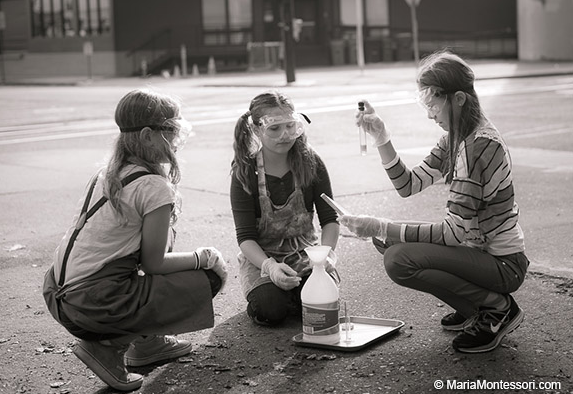
October 30, 2022
“The fundamental basis of education must always remain that one must act for oneself. That is clear. One must act for him or herself.” –Maria Montessori
Early on as a teacher, I experienced a dramatic demonstration of this “fundamental basis” while tutoring a unique young girl.
Rachel (I’ve changed her name for privacy) was brilliant in many ways, but also very disorganized. At 12, she would write college-level essays – and then lose the memory stick on which she had saved her work. At 13, she would masterly argue both sides of a historical debate – and then not be able to eat her lunch after class because, well, she forgot where she had put it.
When Rachel and I met for our brief daily “organizational tutoring,” I tried everything to change her destructive habits. We had sticky notes, we had planners, we had parent conferences, we had endless dialogues … we had everything. Yet nothing ever really worked. Until one afternoon.
School had just ended, and Rachel was trudging her way down the steps to our tutoring session, her backpack slightly open and precariously dangling off her shoulder, when next thing I knew the door to the tutoring room swung open wildly, and there she was, disheveled, with books literally falling out of her hands. She glanced around the room and with triumphant dejection said, “I don’t know why we even have to do this!”
That’s when it hit me. Rachel had said “we” and “I don’t know why *we* even have to do this!” In an instant, the fatal error in my approach became clear. At the stage of development when adolescents genuinely crave and need a strong sense of independence and self-direction, this young girl had never truly owned her own organizational difficulties. *I* had been the driving force in her attempted improvement, while *she* had never even chosen to begin that process, let alone to direct it.
After a few moments of thinking to myself, “Oh boy! What do I do now??“ I looked at Rachel and said sincerely, “You don’t have to come to tutoring anymore. If you find that you want to work on an organization (or on anything else), let me know and we’ll plan a schedule that makes sense for you.” And then I said goodbye. That was it.
I don’t recall whether it was a couple of days or weeks later, but not long after that difficult afternoon, we began our tutoring back up. This time, however, *Rachel* initiated the sessions and *Rachel* chose the schedule (how many days a week we’d meet and for how long). After a few months of dedicated work, with the to-be-expected hiccup here and there, Rachel got herself organized – and proudly, glowingly so. And shortly thereafter, our organizational tutoring ended. She no longer needed it.
When I began teaching years ago, I had the view that I can change any child; over time, however, through working with and alongside hundreds of unique students, I came to see that such a view is more accurately stated as any child can change himself. A subtle shift in phrasing, yet a fundamental distinction in pedagogy. This self-directed approach to education does not mean the teacher, the “guide,” is unnecessary. On the contrary, a thoughtful guide creates a content-rich, and often highly structured environment in which a child can thrive, but only through her own will. As Rachel’s story exemplifies – and as Maria Montessori spent her life both observing children and demonstrating for adults – growth is impossible to achieve for another human being: “One must act for him or herself.”